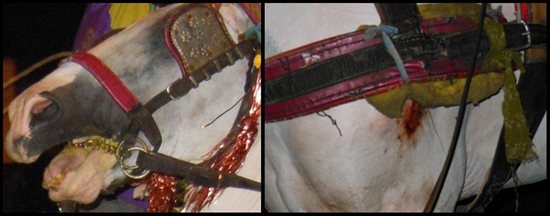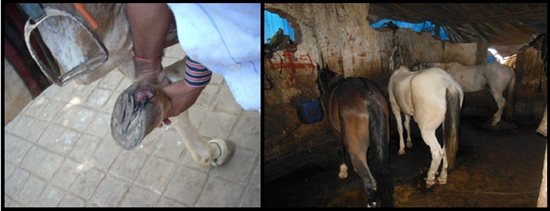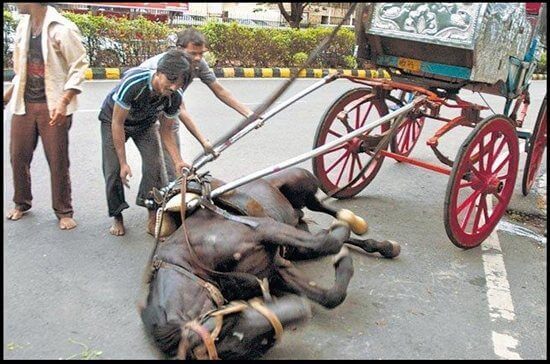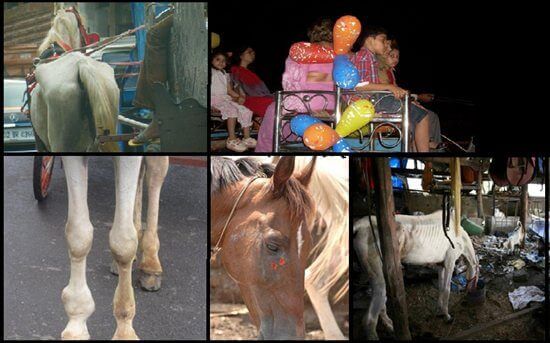PETA Investigates Mumbai’s Victorias
Right before the High Court of Bombay hearing for Mumbai’s horse-drawn carriages on 13 December 2012, PETA released the findings of its latest investigation of cruelty to horses used by the carriage industry in the city.
See some of the heart-rending photographs from PETA’s investigation, which show sick, injured, overworked and malnourished horses forced to live in atrociously filthy conditions.
An earlier court ruling suggested that horses found to be unfit should not be used for pulling carriages again until a veterinary officer determines that they are fit. As PETA points out, though, the stables are in decrepit condition, and forcing horses to work in the congested city, hauling loads on pavement, deteriorates their physical and mental health. The following are just a few of PETA’s findings:
- Many horses were fitted with spiked bits, which cause their mouths to bleed. Horses were found with swollen lips and cuts in their mouths.
- Stables were found with various problems, such as poor ventilation and no drainage. The accumulated garbage, faeces and urine served as breeding grounds for flies, germs and disease. Food was often thrown on top of the horses’ own faeces.
- Most of the stables lacked any facility whatsoever for water, and horses weren’t given water between gruelling stints of pulling passengers. They are also starved while at work for up to 12 hours a day, even though their digestive systems require continuous feed intake in small quantities.
- Fatigued, overloaded horses were routinely whipped to make them move faster. Many drivers cover up the wounds using lime mortar, which acts as an irritant.
- Many horses’ joints were so sore or swollen that they continually lifted their legs off the ground in order to rest them.
- Most of the horses were found with drooping heads, a sign of severe depression.
- Drivers readily permit the overloading of their carriages.
Join the campaign and call for a ban on cruel horse-drawn carriages in Mumbai.











